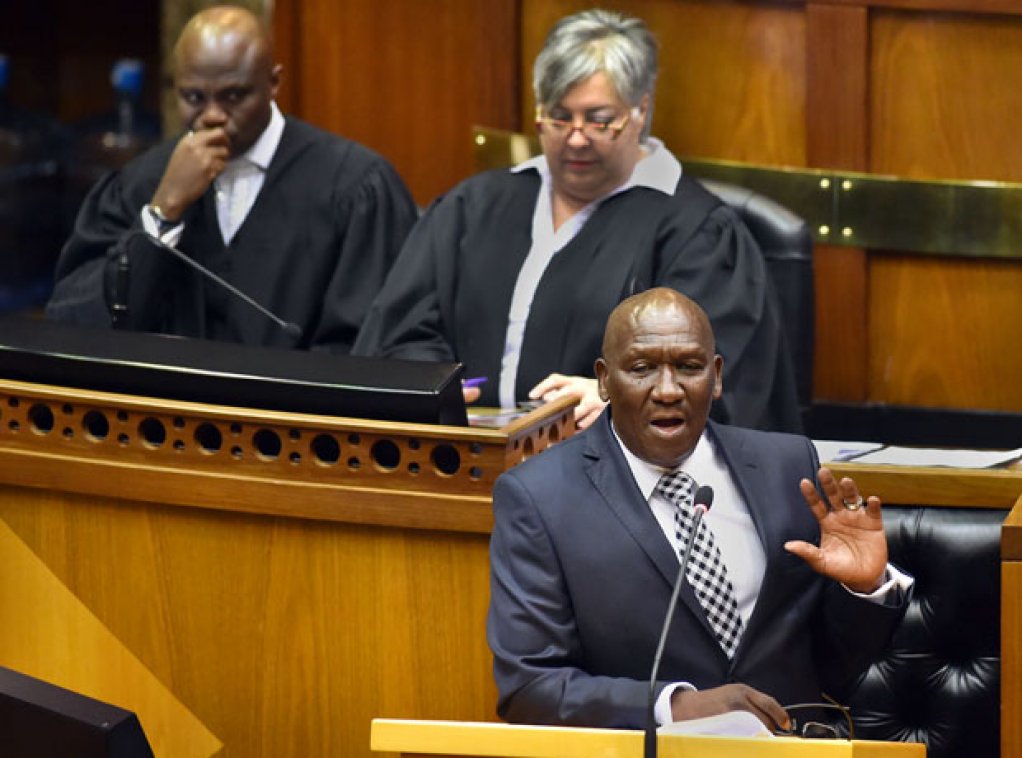Deputy Minister of Agriculture, Forestry and Fisheries Bheki Cele says the proposed Agricultural Policy Action Plan (APAP) will help transform the agri-business sector and promote inclusive growth.
The Deputy Minister said this when opening the second day of the debate on President Jacob Zuma’s State of the Nation Address (SONA) in the National Assembly on Wednesday.
He also said APAP, which government was working with the private sector to develop, was aimed at driving the inclusive market agenda aimed at creating jobs and improving food security.
“Government will invest in expanding its support programmes in order for land to be converted into active, vibrant farming projects.
“New farmers entering the Agricultural market will be further encouraged to farm with commodities of high growth potential, and high labour absorption, identified in APAP.
“To support these farms and ensure massive economic growth, government aims to create an enabling environment by providing appropriate infrastructure in the form of fencing, dip tanks, equipment, veterinarian services, and extension support,” he said.
During the State of the Nation Address, the President said APAP would be used to bring one million hectares of land to full production over the next three years.
Limit land ownership by foreign
The Deputy Minister spent some of his allocated time responding to criticism from opposition parties, including one from DA MP Mziwenqaba Bhanga, who argued that the decision to limit land ownership by foreign nationals would cap foreign investment.
He said this was a normal practice in other parts of the world.
“The European Union, on the other hand, effectively circumscribes the right of Member States to restrict or regulate the ownership of land by foreigners who are nationals of other Member States.
“Moreover, cases like these include the Republic of Ireland, where foreigners (except those with 7 years continuous residence) are required to obtain the permission of the Land Commission to purchase land or hold a lease, mortgage or contractual interest, such as an option, in agricultural land.”
Fisheries sector
The Deputy Minister said, meanwhile, the fisheries sector was the least transformed and required a radical approach to transform it.
He also said the fishing rights allocations was one of government’s ways of democratizing the sector.
“As such, the Minister of Agriculture, Forestry and Fisheries has extended the existing fishing rights until February 2016, affording government the time to find a more permanent solution.
“The Minister further plans to engage big players of the fishing industry, such as I&J, Sea Harvest, Ocean, Blue Continental and Viking, to encourage them to work together with government in finding a lasting solution for the transformation of the sector,” he said.
Eskom’s plan to service power stations
Meanwhile, Public Enterprises Minister Lynne Brown said to keep the lights on and to meet demand, Eskom has over the past six years operated the generating fleet hard, while waiting for new capacity to come on-line.
She said this was done at the expense of scheduled preventative maintenance, which had to be delayed.
She said this practice would now be changed.
“Eskom is now following its preventative maintenance schedules to the letter and to the highest standards. This means that it is taking generating units out of commission for periods of time, even if it results in load shedding.
“In this way, over time, all our power stations will be restored and will, once again, be reliable and predictable,” she said.
The Minister said she had the support of the business sector and this had to be done to put load-shedding behind South Africa in the medium to long-term.
ACDP Parliamentary leader Reverend Kenneth Meshoe said earlier that the ongoing electricity challenges could lead to a breakdown of the electricity grid.
Minister condemns Soweto, Malamulele violent protests
Justice and Correctional Services Minister Michael Masutha said the recent looting of foreign-owned shops in Soweto and the burning of schools in Malamulele was unacceptable.
“No functional or self-respecting state will ever condone anarchy resulting from the use of violence even in the exercise of legitimate and constitutional rights of protests, freedom of expression, association or conscience.
“We therefore condemn in the strongest terms the violent acts of fellow citizens, the burning of public infrastructure and severe disruption of services.
“Incidents of this nature have in recent times had the effect of disrupting schooling of our children who face the brunt of this suffering,” he said.
EMAIL THIS ARTICLE SAVE THIS ARTICLE
To subscribe email subscriptions@creamermedia.co.za or click here
To advertise email advertising@creamermedia.co.za or click here











